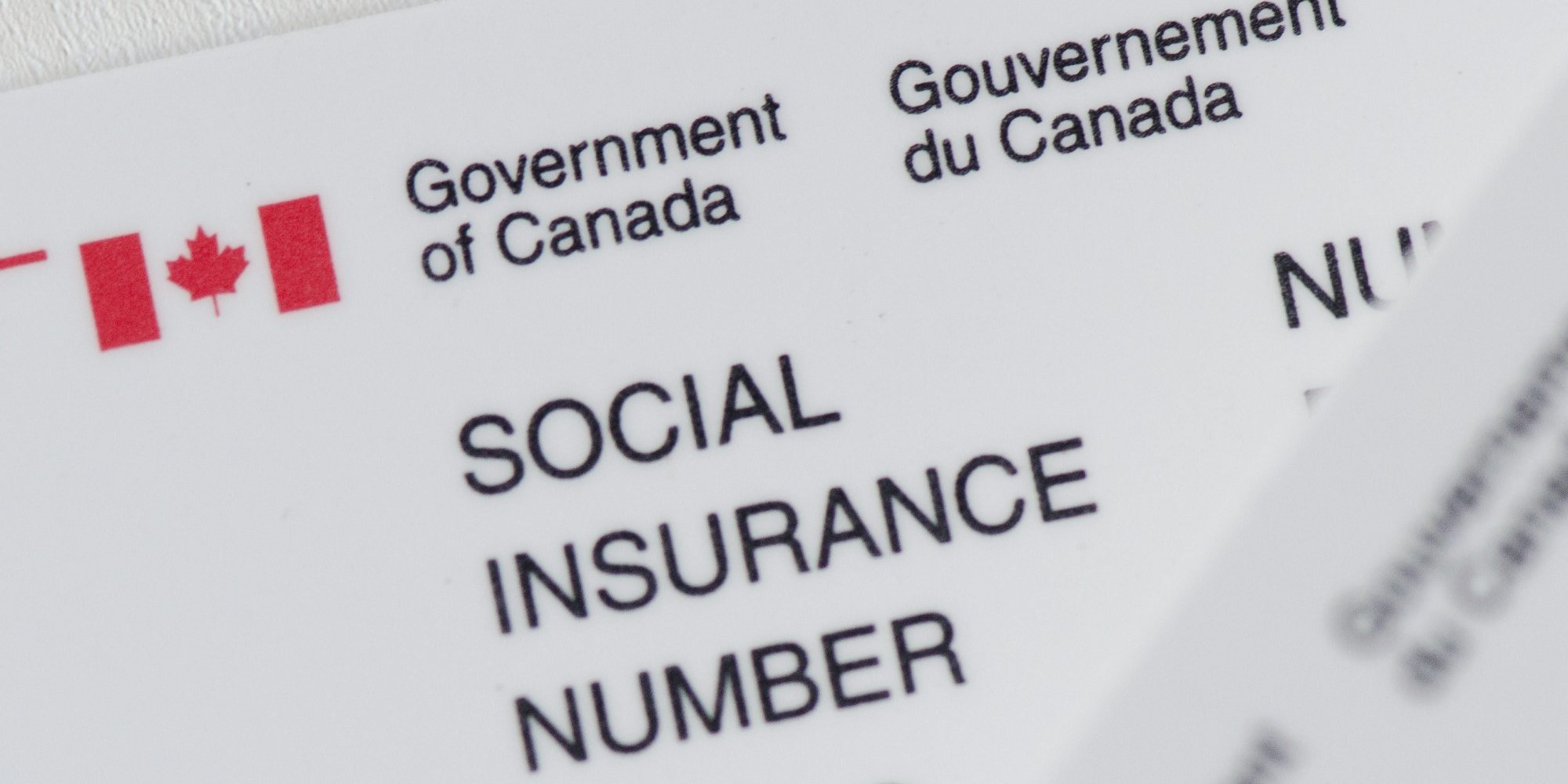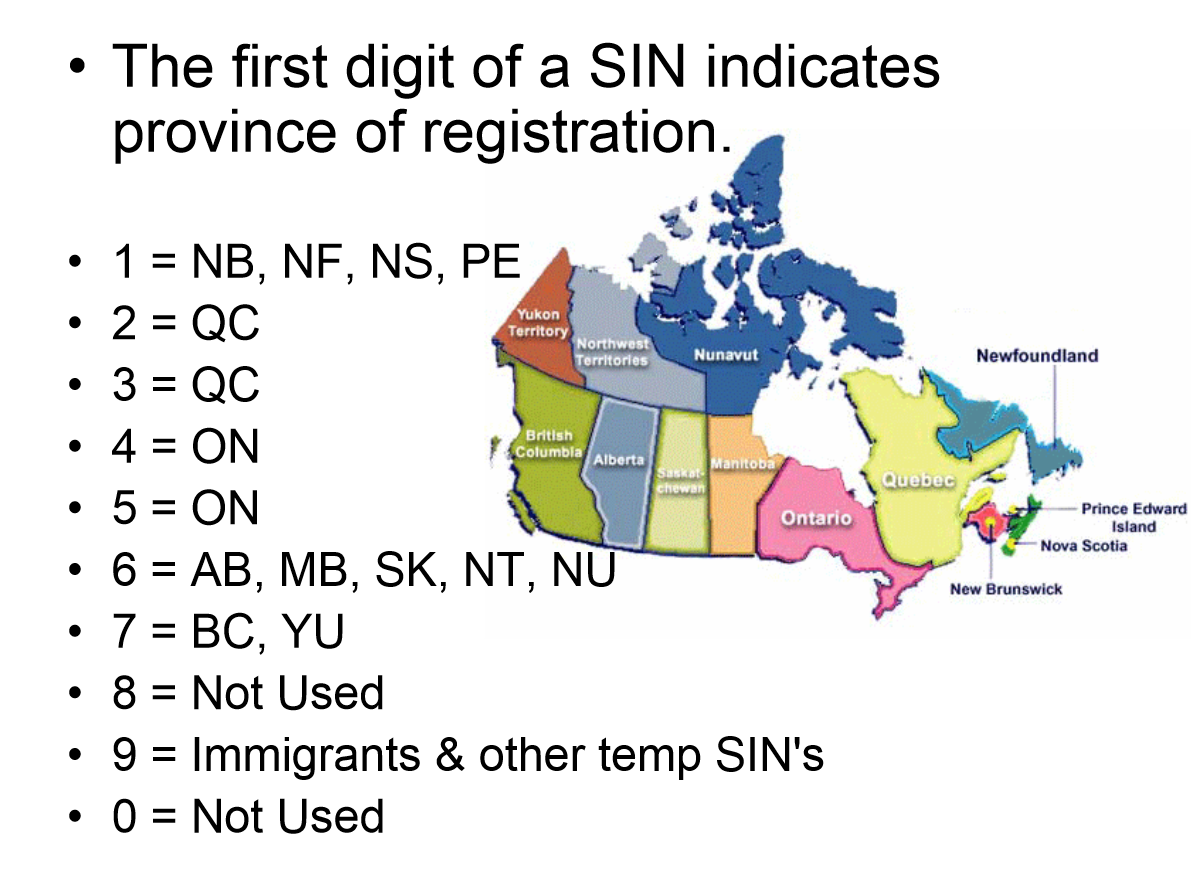Become an insider!
Get our latest payroll and small business articles sent straight to your inbox.
A Social Insurance Number (SIN) is a 9-digit form of identification that every individual residing and/or working in Canada must have in order to access government benefits, file income taxes and, most importantly, get paid. (Through the fate of acronyms, SIN also sounds a bit biblical.)
A short timeline of the SIN.
1964 — SINs were created to serve as a primary form of identification within the Canada Pension Plan, as well as the country’s employment insurance programs.
1967 — The Canada Revenue Agency (CRA) began using SINs for tax reporting.
2013 — New Employment Insurance Regulations came into effect requiring that employees provide employers with their SINs.
2014 — Service Canada stopped issuing plastic SIN cards. As a measure to prevent identity theft, a confirmation letter, containing the SIN, is sent to the applicant.
Employers’ responsibilities.
Requesting a SIN for employment — The Government of Canada specifies that employers must receive each new employee’s SIN within 3 days after the day that their employment begins. Note: You may not ask for a prospective employee’s SIN on an employment application or during the interview process.
Using a SIN for documentation — Employers must use an employee’s SIN to provide a Record of Employment (ROE), complete a T4 for income tax purposes and file payroll deductions, including the Employment Insurance (EI) program, Canada Pension Plan (CPP) or Québec Pension Plan (QPP), and Quebec Parental Insurance Plan (QPIP).
SINs starting with the number 9 — Employers must guarantee that temporary foreign workers (issued SINs starting with the number 9) have valid documents granting the right to work in Canada. Citizenship and Immigration Canada (CIC) issues expiry dates for these SINs that determine how long each worker is permitted to be legally employed. If this number is expired, the employer must ask the employee to renew their SIN.
Information security — Employers are required to protect the security of their employees’ personal and identifying information, including SINs. The list of dos and don’ts for employers collecting, using and storing SINs includes:
- Shredding any old/outdated paper records containing SINs.
- Securing and encrypting current data containing SINs and limiting access to these systems.*
- Allowing employees to access and/or update their personal information.
- Never asking for a SIN during the interview process or on an application form.
- Never using a SIN as an employee identification number within your system.
- Never hiring anyone with an expired or fraudulent SIN.
Verifying a SIN.
There’s a simple formula to verifying that your employee has provided a valid SIN.
Step 1: First, multiply each individual number of the SIN by 121 212 121.
SIN 130 692 544
X 121 212 121
160 394 584
Here’s the math on that:
1 x 1 = 1
3 x 2 = 6
0 x 1 = 0
6 x 2 = 12 (Add 1 + 2 to get 3)
9 x 1= 9
2 x 2 = 4
5 x 1 = 5
4 x 2 = 8
4 x 1 = 4
Step 2: Once you get your new 9-digit number, add all of the digits together. If the result is a multiple of 10, the SIN is valid.
160 394 584
1 + 6 + 0 + 3 + 9 + 4 + 5 + 8 + 4 = 40
One final tip: If a SIN starts with 0 or 8, it may be fake.
Source: Straightline International’s How to Validate SIN (Numbers)
SIN holders’ (employees’) responsibilities.
Who is required to have a SIN — The Government of Canada requires that all citizens, newcomers and temporary residents have a SIN in order to receive benefits and services from government programs, like Employment Insurance (EI).
You also need a SIN to:
- Be employed and receive wages.
- Pay federal income tax.
- Hold accounts and investments where interest is earned.
Protecting your SIN — As a form of government identification, each individual’s SIN provides you access to a range of government benefits. However, in the wrong hands, a SIN can be used to access personal information fraudulently.
The dos and don’ts for individuals to prevent identity and credit theft include:
- Keeping your SIN in a safe place and never carrying it in your wallet or purse.
- Shredding all personal documents that contain your SIN prior to disposal.
- Using best practices, like firewalls and secure passwords, to protect digital information.
- Knowing who should not request your SIN:
- Individuals are not legally required to provide a SIN to complete a job application, rent a property, apply for a credit card, loan or mortgage, cash a cheque, complete medical questionnaires, rent a car, write a will, apply to colleges or universities or communicate electronically.
- If you are unsure, ask for legal verification that the entity may request your SIN. If you are not satisfied with the organization’s response, you may formally complain to the Office of the Privacy Commissioner of Canada at 1-800-282-1376.
- Being cautious about providing your SIN by phone, unless you taking to an employer or approved government entity.
- Being equally careful about unsolicited requests that you receive via email or online.
- Contacting Service Canada if you change your name, if your citizenship status changes, or if information on your SIN record is incorrect or incomplete.
Lost or stolen SINs — If your is lost or stolen, Service Canada won’t issue a new one. However, if you can prove it’s been used fraudulently, they may issue you a new one. Follow the Reporting SIN fraud instructions to find out what steps to take.
Applying for a SIN.
Prior to seeking employment, most people will have applied for and received a SIN. Just in case, here’s the process: You can apply online, in person or by mail. Application is free, but you must include identifying documents (which may vary depending on your situation and status in Canada) regardless of how you choose to apply.
Fun SIN facts.
The first number in a SIN indicates the province in which it was registered (the numbers 0 and 8 are not used):
In spite of how widely SINs are used, Parliament has never been given the opportunity to vote on the issue. The regulations governing the issuance of SINs were authorized by an order-in-council. (Source: The Canadian Encyclopedia)
This concludes your history lesson for today. If you’re still in the mood for more mind-expanding information, read up on Registering Your Business and Employees for Payroll and the 5 of the Most-Asked Canadian Payroll Questions.
*Wagepoint’s servers are hosted in the Amazon cloud to support our international expansion while providing our customers with greater security, reliability and functionality. Wagepoint also provides 256-bit SSL encryption on your connection to the Wagepoint site.
Disclaimer: The advice we share on our blog is intended to be informational. It does not replace the expertise of accredited business professionals.














